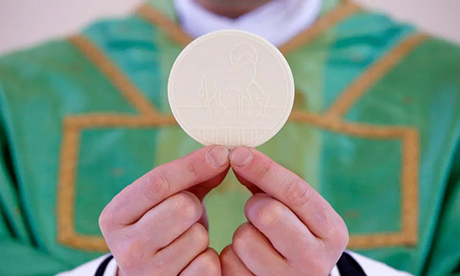An Irish politician was denied Communion at a funeral Mass in Cork because he supported repealing the Eighth Amendment which legalised abortion in Ireland.
Fine Gael TD Colm Burke said he had been left shocked after being refused communion with the priest, Fr Gabriel Burke. The junior Health Minister said the priest involved told him he had been “excommunicated” from the Catholic Church.
The incident occurred at the funeral of a long-standing Fine Gael member and parishioner where three priests were distributing Communion.
Fr Burke said that “as a senator, Colm Burke voted for abortion after the 2018 referendum and he knows the teaching of the [Catholic] Church that any politician who voted [for] abortion cannot receive communion”.
The priest argued that Mr Burke excommunicated himself by voting for abortion legislation. This is known as Latae Sententiae excommunication, where the act incurs automatic excommunication.
Fr Burke stated that neither he nor the Pope excommunicated Colm Burke, but the politician’s actions caused it.
Minister Burke, who regularly attends Mass, questioned the priest’s authority to refuse Communion, citing Canon Law. The Irish politician contacted the Cloyne diocese for clarification and is writing to Bishop William Crean for further explanation.
Act with their conscience
The action by the priest has drawn condemnation from the Association of Catholic Priests (ACP).
In their statement, the ACP noted how, prior to the Eighth Amendment being repealed, “Irish women were travelling abroad to avail of abortion services, while legislators and citizens looked the other way”.
It said that “like every member of the Catholic Church, public representatives must act in accordance with their conscience. It is not the role of the priest to judge the conscience of another person. The priest does not own the Eucharist and would do well to ponder the statement of Pope Francis that he has never refused the Eucharist to anyone”.
In 2021, Pope Francis stated that Communion denial for pro-abortion politicians should be handled pastorally. He opposed public condemnations that aimed to “excommunicate” Catholics who disagreed with church teachings.
Sources
